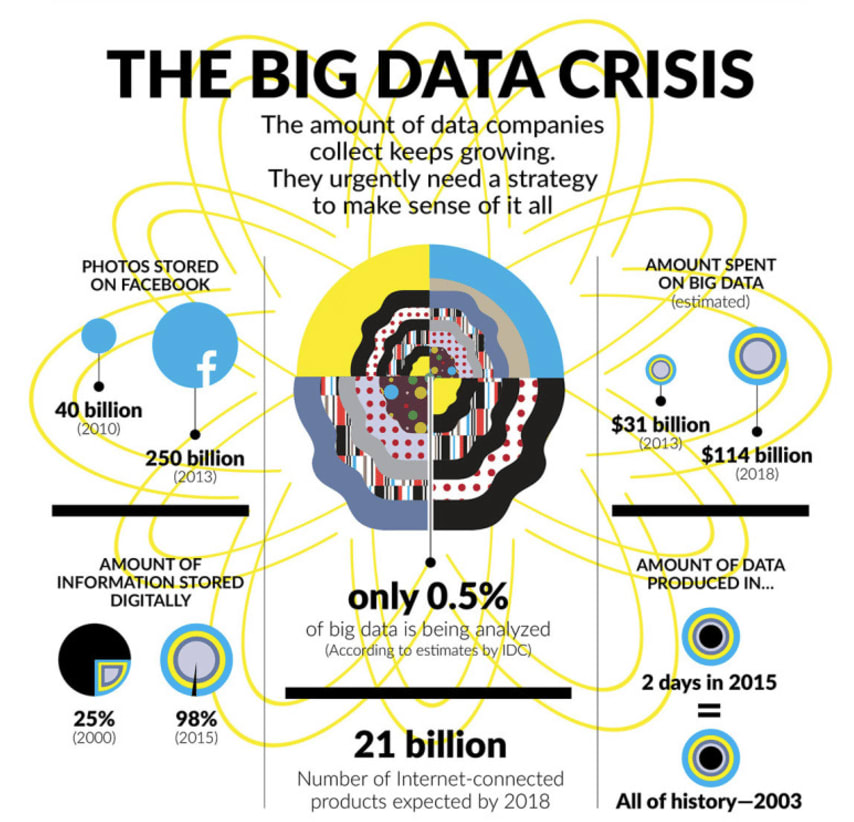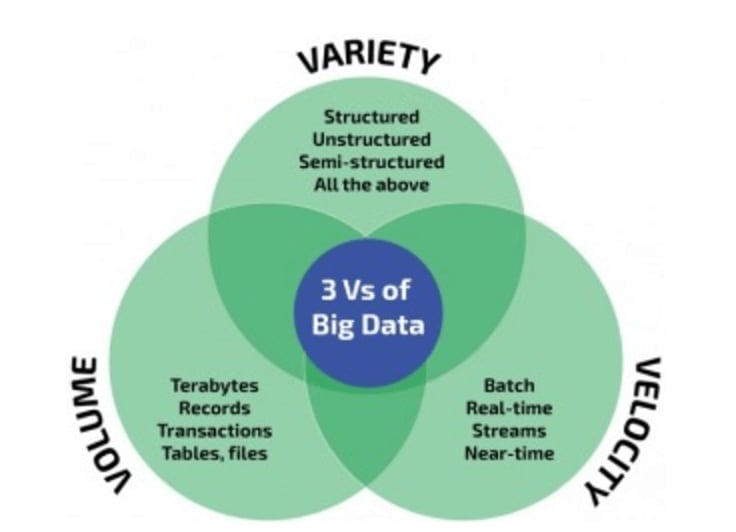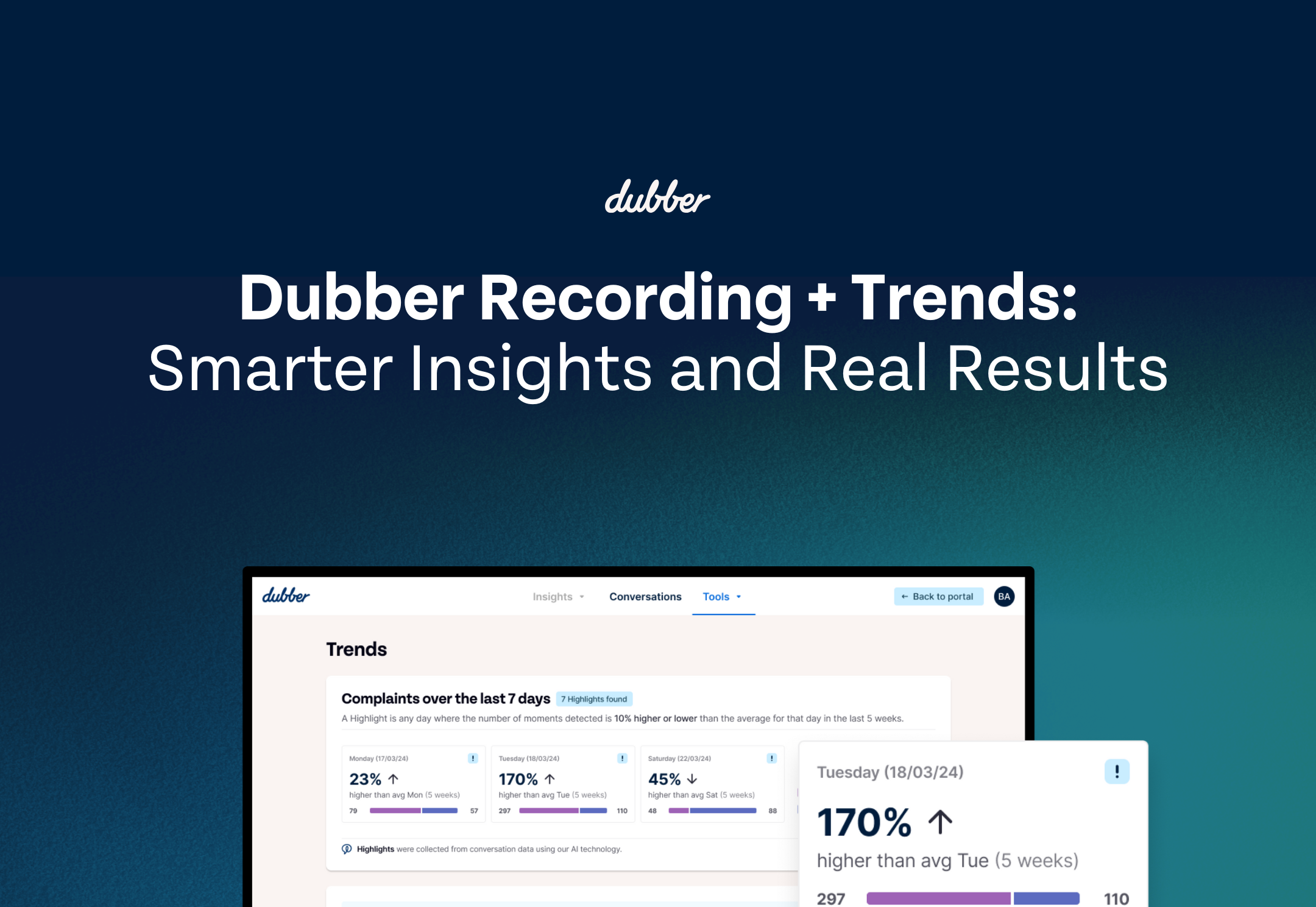

Big Data Part 1: What Does Big Data Mean for Telcos?
This post is part of a three-part series on Big Data:
- What does Big Data mean for Telcos?
- How Big Data will Change Contact Centres Forever
- Big Voice – a Case Study on Tackling Autism
Big Data is a subject currently receiving substantial attention within the communications and technology sectors. With its potential role in the development of the Internet of Things and smart cities, two of the most talked about topics in the industry, the buzz is not surprising. But what actually is Big Data, and what does it mean for technology? Most importantly, what role will it play as technology drives us towards the ‘Fourth Industrial Revolution’? Here, we strip Big Data down to the basics and explore its potential.
As is always the case with industry trends and buzzwords, ‘Big Data’ is a very vague term, often utilised to aid sales without honouring the true meaning. Put simply, it is exactly what it says on the tin – large volumes of data, or more specifically, the large volumes of data that flood businesses on a daily basis.
But what does this actually mean? Big Data cannot be simplified by defining it as large volumes of data; the true value lies in what is done with the data, and what value businesses can draw from it. Properly used, Big Data can be a gold mine of business insights. However, the volume of data that is collected every day is enormous, and to be able to discern any insight from it, appropriate management strategies are a necessity.
Infographic from Business2Community
The concept of Big Data first gained attention in the early 2000’s, when industry analyst Doug Laney defined Big Data in terms of the three V’s – a definition that is still in use today:
- Volume – large amounts of data are collected daily from a variety of sources, all of which must be processed
- Velocity – data streams flow into businesses at incredibly high speeds that must be matched in their processing.
- Variety – data is collected in a wide range of formats, including structured – numeric data in databases, and unstructured – email, video, financial transactions and more.
In today’s increasingly digital world, at the beginnings of the ‘Fourth Industrial Revolution’, the volume of data that is created and stored worldwide on a daily basis is inconceivable. Business data has increased in volume, velocity and variety, and it is this increase that is the true meaning and relevance of Big Data.
Image from Soft Computing and Intelligent Information Systems
Big Data is capable of providing indispensable business insights as long as it is efficiently managed. Smart analysis of the data can assist enterprises in making businesses decisions that could ultimately result in cost reductions, time reductions, new and optimised product development and streamlined business processes. Furthering its potential are companies who are combining Big Data with high-tech analytical solutions, to discover information that is even more powerful and insightful. The use cases are limitless, including:
- Diagnosing the cause of system failures quickly and efficiently
- Generating recommendations at the point of sale, based on the customer’s buying habits
- Detecting fraudulent behaviour fast and resolving the issue before your business is affected
- Many more
An example of a company that is a Big Data success story is Uber. Monitoring use of its application by both drivers and users, Uber has mapped a real-time logistics flow of human transportation. This use of Big Data has enabled Uber to enter new markets and continually regenerate the company and their revenue streams. Uber are the perfect example of how the potential lies not in the volume of data, but in its management, and they used it for a very simple purpose – to dispatch cars to the right users. With this simple yet powerful use of Big Data, Uber have grown into a company that is currently dominating the consumer transportation sector.
The final question is how to build solutions that enable enterprise users to utilise Big Data and maximise business productivity. Maximising its potential could open telcos up to new revenue streams, and provide them a gateway to smart cities and the Internet of Things, which will further their growth trajectory infinitely.
Only 0.5% of business data is currently being analysed; providing significant opportunity for telcos to deploy Big Data solutions that assist enterprises in business decisions. Telcos need only tap into the potential to gain access to unlimited numbers of new clients and profit opportunities. Even more significant for telcos is Big Voice, a solution that provides deep insights into customer communications, going beyond simple statistics. Big Voice enables telcos to deduce a customer’s communication pattern by analysing their call times, locations and more. This information helps telcos to gain an understanding of individual customer activity, and to then cater solutions to fit these requirements. Organisations can also use recorded data to analyse the sentiment of their customers and internal communications and keep a catalogue of smart, searchable call recordings. Ultimately, Big Voice turns audio and call recordings into rich business assets, enabling companies to streamline and improve business processes, ultimately increasing the likelihood of retaining customers.
The role that telcos must play in Big Data management, what it will mean for call centres and similar businesses, and the future of communications once Big Data and analytics solutions are partnered, will be addressed in the second post in the series.



